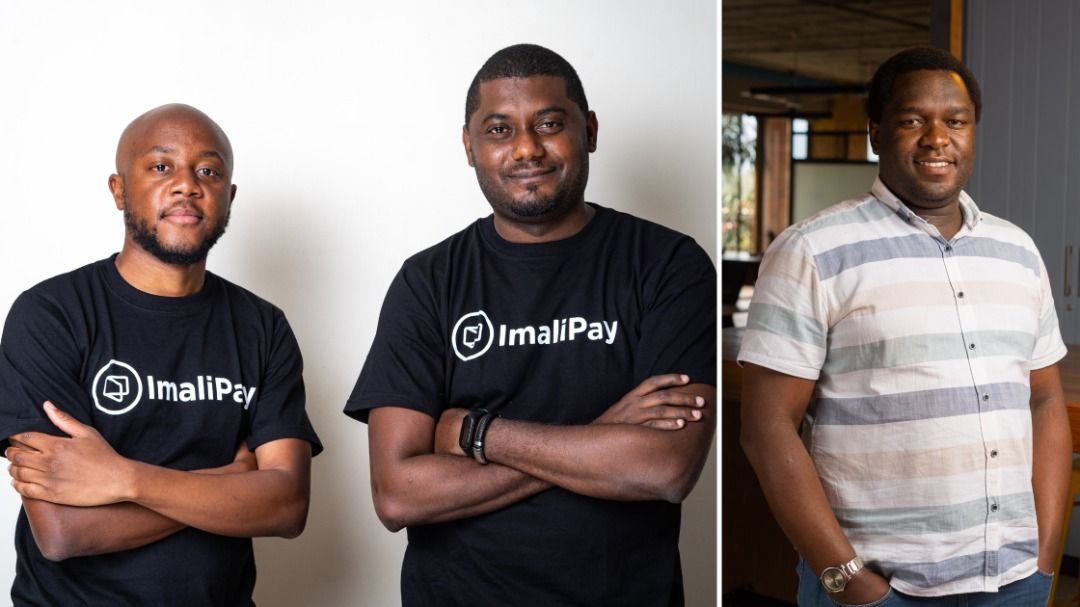ImaliPay has partnered with Cellulant to leverage the pan-African payments company’s infrastructure and solutions in Kenya and Nigeria.
The partnership would allow ImaliPay to further enhance financial inclusion of gig workers across Africa. Its users would have easy access to financial services through Cellulant’s payment rails. “The ease of making and receiving payments for freelancers will be greatly improved through this partnership and [it] will change the way gig workers experience making payments”, Cellulant said.
Launched in 2020, ImaliPay (also known as ImaliPay Technology Corporation) describes itself as the “financial sidekick” of freelancers and blue collar gig workers. ImaliPay uses artificial intelligence and big data on its digital financial platform to provide tailored financial products and services that promote the inclusion of gig workers in partnership with gig platforms.
ImaliPay co-founders are Zimbabwean Tatenda Furusa (CEO) and Nigerian Oluwasanmi Akinmusire (COO). Both of whom were former employees of Cellulant. Between 2013 and 2020, Furusa served in different roles at Cellulant including bank engagement officer, technical adviser, and senior manager of global payments. And between 2015 and 2019, Akinmusire worked as chief of operations at Cellulant Nigeria and chief commercial/business officer of Tingg Marketplace–Cellulant Group.

“Our partnership with Cellulant is an important step in our journey to improve the financial health of gig workers on the continent by leveraging Cellulant’s payment infrastructure to offer our customers an easy way to make and receive payments”, Furusa said.
Most of the financial services provided today are not designed with gig workers in mind, Akinmusire said. “Our aim at ImaliPay is to build an ecosystem where gig workers can create a safety net around their work through savings, credit, and insurance that drives their productivity and economic empowerment”.
ImaliPay is one the 50 startups that received $100,000 paired with up to $220,000 in Google ad grant and cloud credits last month as part of the $5 million Google for Startups Black Founders Fund. In March 2021, ImaliPay had raised an undisclosed amount in a pre-seed round led by TEN13 — an Australian venture capital firm.
Earlier in May 2021, ImaliPay had partnered with MicroEnsure, a subsidiary of the Micro Insurance Company to provide digital insurance products to gig workers in Kenya. And last year November, ImaliPay announced its partnership with bike-hailing startup SafeBoda in Nigeria.
In addition to Kenya and Nigeria, ImaliPay is also operational in South Africa. And Cellulant is operational in 12 African countries, including Botswana, Senegal, Mozambique, Nigeria, Ghana, Zimbabwe, Malawi, Kenya, Tanzania, Uganda, Cote d’Ivoire and Zambia.
The Chief Business Officer of Cellulant Group, David Waithaka, said: “Wwe’re driven by our belief to provide solutions to everyday challenges across Africa by digitizing payments for various value chains. For us, it’s about what people, businesses and communities can do when the movement of money becomes seamless, dependable and more transparent. We’re proud to partner with Imali Pay, with whom we have shared values and ambitions, to grow the gig economy in Africa”.
Side note: A little over a year ago, Cellulant Nigeria Limited was embroiled in crises which resulted in the resignation of its CEO and co-group CEO Bolaji Akinboro and the dismissal of 35 staff members.
Get passive updates on African tech & startups
View and choose the stories to interact with on our WhatsApp Channel
Explore




